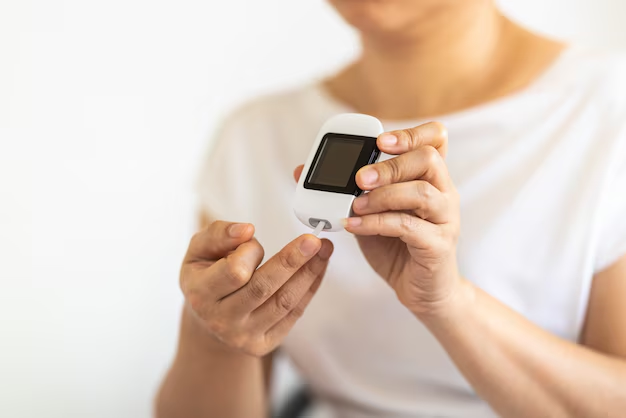Your Guide to Can High Bp Cause Diabetes
What You Get:
Free Guide
Free, helpful information about Diabetes FAQ and related Can High Bp Cause Diabetes topics.
Helpful Information
Get clear and easy-to-understand details about Can High Bp Cause Diabetes topics and resources.
Personalized Offers
Answer a few optional questions to receive offers or information related to Diabetes FAQ. The survey is optional and not required to access your free guide.
Could High Blood Pressure Be the Gateway to Diabetes?
In a world where health concerns are constantly evolving, two of the most prevalent conditions often discussed are high blood pressure (hypertension) and diabetes. While they are commonly encountered individually, a question that frequently arises is whether high blood pressure can actually lead to diabetes. The link between them isn’t just mere coincidence but a complex interplay worth exploring for anyone keen on understanding their health better.
Understanding the Relationship
High blood pressure and diabetes often coexist, but why? The pivotal connection lies in their shared risk factors:
Obesity: Excess weight significantly contributes to both high blood pressure and diabetes. Adipose tissue, especially around the abdomen, can increase insulin resistance, a precursor to type 2 diabetes, and concurrently exert more pressure on the cardiovascular system, leading to hypertension.
Sedentary Lifestyle: Lack of physical activity contributes to weight gain and insulin resistance, fostering conditions for both high blood pressure and diabetes to thrive.
Diet: High consumption of salt, sugar, and processed foods is a common dietary pattern for individuals suffering from either condition. These dietary habits encourage the development of both.
Chronic inflammation and insulin resistance notably bridge the connection between these two. Insulin resistance increases blood sugar levels, linking closely to hypertension, as the body’s compensatory mechanisms to metabolize excess sugar inadvertently raise blood pressure.
Can Hypertension Directly Cause Diabetes?
While high blood pressure doesn't directly cause diabetes, its presence accelerates the risk of its onset, driven by factors that complicate the body's ability to manage glucose efficiently. There's an inference through studies that people with hypertension are more likely to develop type 2 diabetes than those with normal blood pressure levels.
What further complicates this issue is the medication used to treat hypertension. Some of these medications can impact glucose metabolism, which may potentially lead to diabetes in susceptible individuals.
Taking Control: Prevention and Monitoring
Addressing lifestyle factors is crucial. Here's what you can do:
- Maintain a Healthy Weight: Weight management through diet and exercise can improve insulin sensitivity and reduce blood pressure.
- Stay Active: Regular physical activity strengthens the heart and optimizes glucose utilization.
- Adopt a Balanced Diet: Prioritize whole grains, fresh fruits, and vegetables. Reduce intake of processed foods.
Transitioning to Broader Support
Acknowledging the financial burden these health issues impose, it's important to explore relevant financial support systems. Health-related challenges often open the door to unexpected financial strains, including medical bills, prescription costs, and lifestyle adjustments. Fortunately, there are several support programs and financial assistance options available:
- Government Health Programs: Medicaid and other support systems can provide necessary coverage for managing chronic conditions like hypertension and diabetes.
- Non-Profit Organizations: Groups like the American Diabetes Association often have resources to support patient education and assist with medication costs.
- Community Health Programs: These often offer free screenings and education sessions for preventative care.
- Pharmaceutical Assistance Programs: Many companies offer patient assistance programs that provide free or low-cost medications to eligible individuals.
Resources at a Glance
Here’s a quick guide to resources that could support you in managing both health and financial concerns:
- 🏥 Medicaid: Comprehensive health coverage for low-income individuals.
- 💊 Patient Assistance Programs from pharmaceutical companies like Pfizer or Sanofi.
- 🌐 State Health Departments: Check for local initiatives on lifestyle diseases.
- 🏃 YMCA Diabetes Prevention Program: A resource for maintaining a healthy lifestyle.
- 📚 Educational Grants and Scholarships: For healthcare-focused studies, aiding in the diversification of this field.
- 💳 Credit Counseling Services: Organizations like NFCC offer financial advice to manage healthcare expenses.
By understanding the link between high blood pressure and diabetes, armed with preventive strategies and financial resources, individuals can steer toward a healthier future, avoiding the pitfalls of two of the world’s most common chronic conditions.
What You Get:
Free Diabetes FAQ Guide
Free, helpful information about Can High Bp Cause Diabetes and related resources.

Helpful Information
Get clear, easy-to-understand details about Can High Bp Cause Diabetes topics.

Optional Personalized Offers
Answer a few optional questions to see offers or information related to Diabetes FAQ. Participation is not required to get your free guide.


